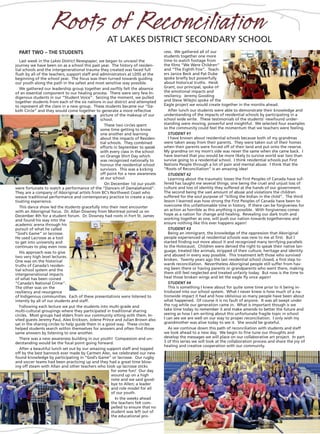The document summarizes the reconciliation efforts at Lakes District Secondary School over the past year. It describes how the school gathered Indigenous and non-Indigenous student leaders to learn about the impacts of residential schools. The students attended performances and lectures to educate themselves, then participated in sharing circles to discuss what they learned. They demonstrated their new understanding through a school-wide writing exercise. The school aims to continue its reconciliation work through a collaborative art project bringing students and community together.
